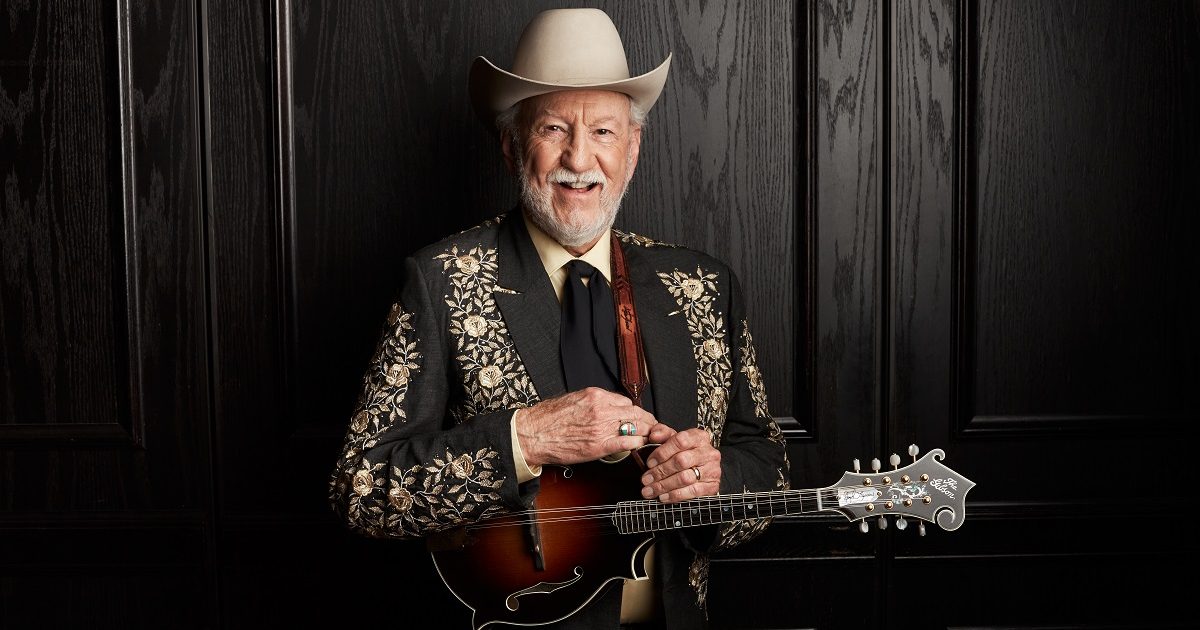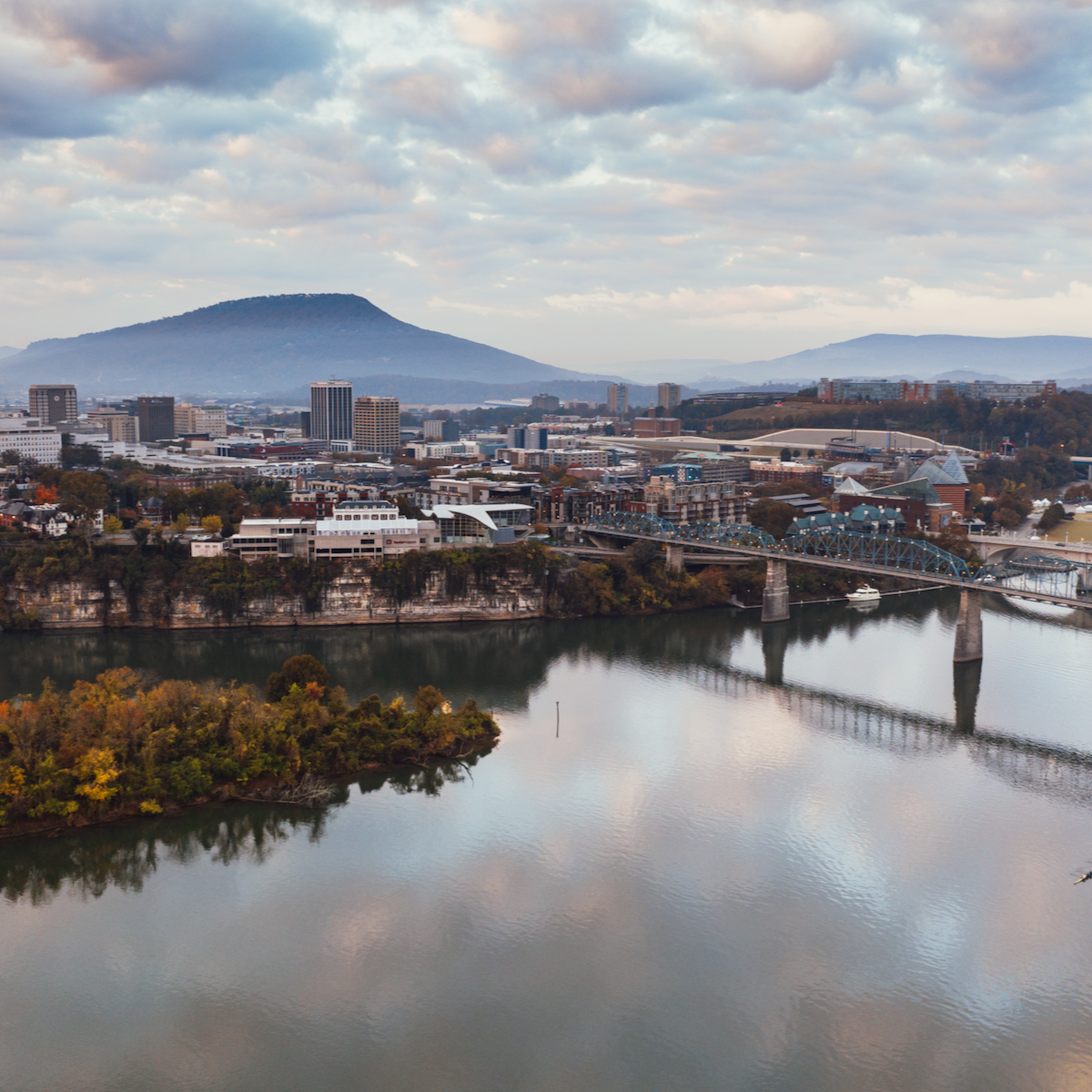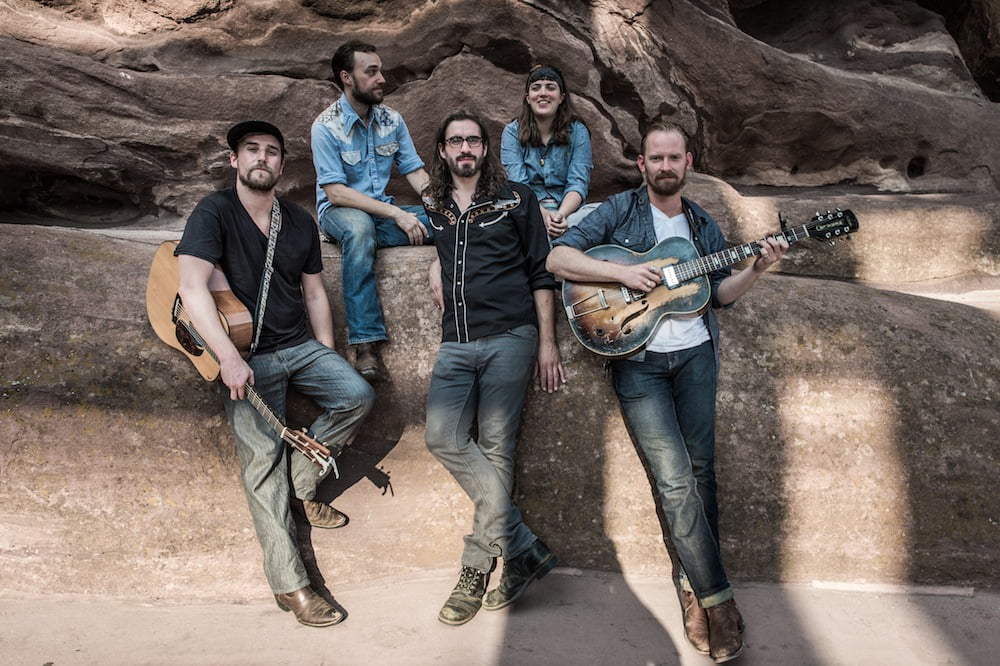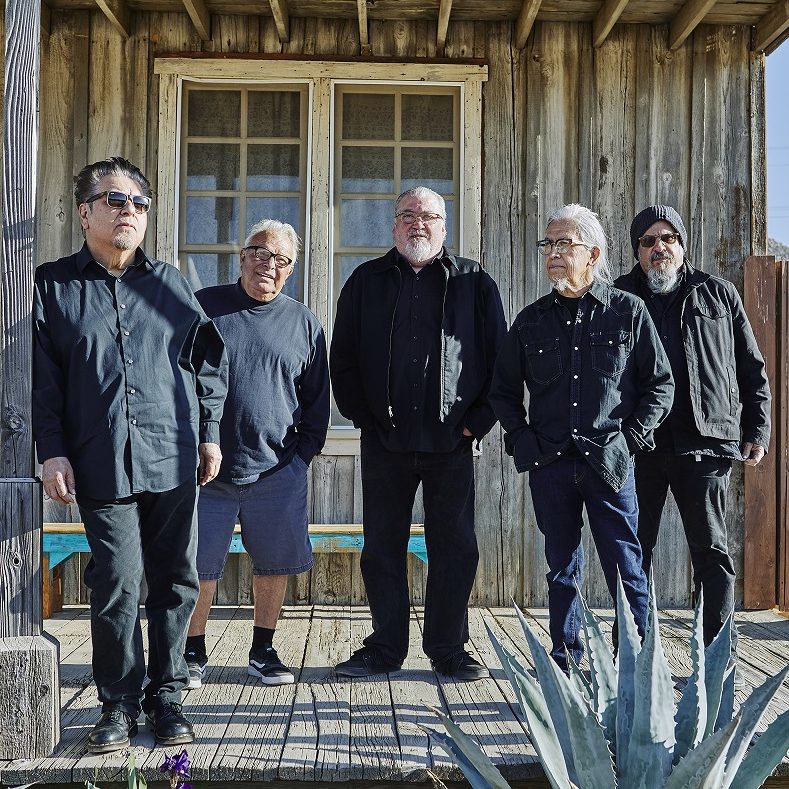On a Friday afternoon, bluegrass legend Doyle Lawson sits in the second-story conference room of the Ole Smoky distillery in downtown Gatlinburg, Tennessee. Down below is a madhouse of people, places and things. Curious faces from across America rolling into this corner of the Great Smoky Mountains for the fall foliage. That, and wandering into the distillery for endless samples of high-octane legal moonshine, only to ready themselves for Lawson and his band Quicksilver to take the patio stage later that evening.
The inundation of blinking lights, loud noises and mass consumerism at the heart of Gatlinburg is a far cry from the Lawson’s humble beginnings in the rural countryside, in a small town outside of Kingsport just to the northeast. It’s also a long way from the starting line of when and where he first stepped into the music industry as a professional. February 1963. At just 18 years old, Lawson boarded a bus in his hometown and headed for Nashville to play banjo for Jimmy Martin & The Sunny Mountain Boys.
Martin, who grew up just down the road from Lawson in Sneedville, Tennessee, liked what he heard from Lawson and hired him to play banjo. From there, Lawson not only transitioned from Martin to J.D. Crowe & The Kentucky Mountain Boys a few years later, he eventually switched to guitar and then to mandolin — the latter instrument at the heart of Lawson’s signature look and tone.
By the early 1970s, Lawson joined The Country Gentleman, one of the biggest string acts of that period. By the end of the decade, Lawson left that group and formed his own outfit, Quicksilver. Some 42 years down the line, Doyle Lawson & Quicksilver remains a pillar of bluegrass music, headlining major festivals coast to coast, all while picking up several honors — including induction into the Bluegrass Hall of Fame (2012) and countless IBMA awards.
And yet, at age 77, Lawson has decided to hang it up, to walk away from the spotlight — on his own terms, and in his own way. There are only a handful of remaining shows left on the schedule, with Lawson making his final rounds through well-worn stomping grounds in East Tennessee, Western North Carolina and Southwestern Virginia.
Once those final notes are played and 2021 comes to a close, Lawson will say goodbye to the stage, to his bandmates, and to the audience that, over the decades, turned a young Southern Appalachian boy into an elder statesman of the “high, lonesome sound.”
BGS: Playing devil’s advocate here, if COVID hadn’t happened, would you have kept going a little longer?
Lawson: Probably, yeah. I would have gone at least through 2022, or maybe even have gone to making it an even 60 years. But I didn’t. Well, it’s kind of bittersweet. You know, at times, I’m sad to see it come to the end because I love touring. I love the travel part and all that. At the same time, there has been a huge sense of relief and a load taken off my shoulders. Because you’ve got a band and, even in the good times, you had to work hard to keep the band working, sometimes you work for everybody but yourself.
You don’t seem like someone that would drift too far from this. I mean, it’s so much a part of you and your DNA.
The touring is what I’m getting away from. I plan on doing whatever comes along that tweaks my interest. I enjoy producing other people and I’ve done some of that for the last several years. If something came along and I decide to go out and do a little pickin’ [then that’s fine]. What I don’t want to do is if [someone said], “Hey, we’re going to give you all this money if you’ll come over here and pick with so-and-so.” Well, it’s not about the money. If it doesn’t feed me musically, [I won’t do it]. It has to be structured. You know me, I like things cohesive and rehearsed. It’s not about money. Money is a necessity, but the reason I play music, first and has always been, for the love of music. And knowing that if I worked hard, we’d probably do all right monetarily.
When you look back at those early days of being a touring musician, what sticks out the most?
Quite honestly, in the early days, for most of us, we lived [two lives] because, by and large, we all had to work a day job and play music. Sometimes it entailed traveling. Sometimes it didn’t allow you to travel. But, in order to survive, you worked a day job. Of course, back then, primarily we worked clubs three or four nights a week, worked five and a half days a week in a day job. Our feet were in both worlds. But we all longed and yearned and hoped for the day that we could devote all of our energy to the music, rather than having to divide it up. I’m thankful that I was able to do that.
I think about when I’ve talked to Del McCoury, with him telling me about the days he wasn’t on the road playing music, where he was a logger and worked in construction, building nuclear power plants in Pennsylvania.
Yep, he was. I did everything. The last full-time job I had, as far a day laborer, J.D. Crowe and I worked together. He was actually my boss. We worked in the shipping department for a place in Lexington, Kentucky. The orders would come down from the office and we’d fill the order, box them up and ship them out. I’d moved down [to Lexington] from Louisville, where I was working five and a half days in a machine shop, running saws, drill presses and sanders.
Several years ago, you mentioned to me about you and J.D. playing the lounge at the Holiday Inn in Lexington.
[In Lexington], we were playing and still working the day job. We’d play in a club called Martin’s Tavern every Wednesday, Friday and Saturday. Sometimes, the horse ranch people and thoroughbred farms would have a little party and we’d do those. But, a fella that owned a chain of Holiday Inns, his daughter was going to the University of Kentucky. Well, the little place we’d play, the kids would come over from the university. They’d pack it out every night. I mean, you couldn’t get in. So, this fella who owned the chain of Holiday Inns, his daughter saw us, told her dad, “You need to go see this group,” told him how the kids would come out. As it happened, he was looking for somebody that would put some bodies in his lounge because it was dead. So, he came down and talked to J.D. He watched us and was just knocked off his feet.
So, this was J.D. Crowe & The Kentucky Mountain Boys?
Yeah. That was late 1967 to early 1968. So, we took that on. Started working six nights a week. It didn’t take long before I looked at Crowe and said, “Man, I can’t work five and a half days a week and work six nights a week here. So, I’m going for it.” I quit [my day job]. I already had one foot out the door. And Crowe quit, too. That’s when we both gave up trying to work both. I’m going to play music, make it go and lock into something [real].
That’s a big decision.
It was a big decision. Go for it. I followed my heart, as [Crowe] did, too. When I worked for Jimmy [Martin], of course we toured. But it was a different level, Jimmy was in Nashville. In truth, the reason I had to leave Jimmy was because we didn’t work enough. Making what he was paying me, I couldn’t make enough money to stay, you know? That’s why we always had to work a day job. In Nashville, in the early 1960s, if you went to try to get a part-time job, if they found out you played music, most of the time they wouldn’t hire you because they knew you were going to quit or would come in trying to get time off for a show. [The day job] got to me. It was like punching the clock, which I didn’t like doing.
When I think about Bill Monroe and Jimmy Martin as bandleaders, they were like a captain of a team, this hub you went through to find your own path. What did you learn from Jimmy that you applied to being a bandleader?
Well, the one thread that would run from Bill through Jimmy to me would be — do it the way you hear it, it’s your band. The band must do what you want. That’s why Bill was such a force with his mandolin. Sometimes you could hear it when he felt like the band was not quite locked in with him, he’d bear down and you could feel him. Jimmy was the same way. I’m often asked how I’ve maintained that certain sound. Well, it’s easy. They change for me, I don’t change for them. If I was a chameleon, I wouldn’t know what I was. As far as sound-wise, it was a formula I wanted to keep, and did keep. If I kept changing every time I hired somebody for the last 42 years, I likely wouldn’t be around today talking to you.
Whether you realize it or not, you’ve always had one leg in the neo-traditional camp and one in the progressive camp. I think that comes down to the fact that you’ve always believed the most important thing is to serve the song.
It is. I’ve always believed it doesn’t matter where that song originates, where it comes from. It’s in the interpretation of that song that determines at a particular time if it’s bluegrass, country or rock. It’s not the song, it’s how you interpret it. You can make it whatever you want to make it. I’ve always been one who will step a little wide of the mark. But, I’ve never gone past where my peers didn’t go before me. I think there’s room within the realm of tradition and the value of the music to take some liberties. If you go too far, and it becomes something that nobody recognizes, then you’re no longer playing what you say you are. I believe in innovation. I think it’s vitally important for any music to be innovative. Because, if it isn’t, it’ll get stagnant.
You were good friends with Tony Rice. And you recorded a lot with him in the Bluegrass Album Band. We’re coming up on a year since his passing. What do you remember most about him, as a performer and as a person?
One of the most dedicated men to his craft that I’ve ever met. When I was working the last go-round with J.D., Tony’s older brother, Larry, was playing mandolin and I was playing guitar. We lived next to each other in Lexington. Tony came and he would stay at Larry’s. That guitar was never out of Tony’s hand. He was dedicated to it and he was inquisitive. He got to thinking beyond the borders of bluegrass. But then, his heart was in bluegrass. He called me and wanted to do a traditional bluegrass recording to let people know where our heart is. It was some of the most fun recordings I’ve ever done. At the same time, you knew you better come with your A-game because you were with the A-players.
We only meant to do one. We thought that was it. Then Tony said, “Hey, they want another album.” We had done five and Tony said no more, his voice was giving him trouble. And I thought that was the end of it. But it got to where people would say, “When’s your next album coming out?” And I’d say, “You know, we’re not even a band.” Then, Tony called up and said, “Let’s do one more, an instrumental.” So, number six we did the instrumental.
Did you get to talk to him before he passed?
I didn’t talk to him a whole lot. It was hard to talk. Sometimes out of the blue, he’d call me or text me or something. Most of the time he’d text. And I respected that because it was pretty difficult. Out of the clear blue, he’d text, “We had it going didn’t we, brother?” We did.
I would surmise that you still talk to J.D. What did you talk to him about when you decided you wanted to step away and make this decision to retire?
I called him. J.D. and Paul Williams, we’re all real close. We’ve remained friends for more than 50 years. I called J.D. and told him that I was going to hang it up. I said I’m going to step away when I’m still happy with what I just did. He said that’s the smartest thing you’ll ever do — walk away when you can still be proud. Don’t wait until it’s too late. He and I both know that some of our peers did, which is sad to see, because they were my heroes. When I talked to Paul Williams, he said the same thing.
And it just so happened that Sonny Osborne called me about something and I told him. He said, “You’re smart to do that, because if you’re not careful — and you won’t even realize it — you’ll be out there trying to do what you can’t do anymore.” I really wrestled with coming off the road at the end of this year. It took a while. But I’ve made my decision. I’m at peace with it. I can look at my career — and not to be boisterous or egotistical — and I can say that I’ve tried to represent the music and my music about as respectable of way as it could be, and I’m proud of that.
Photo Credit: Kim Brantley



